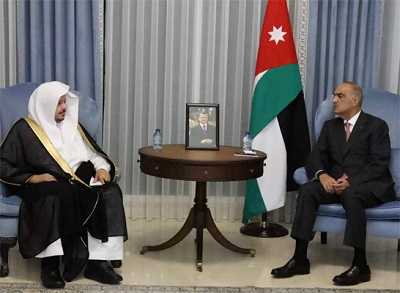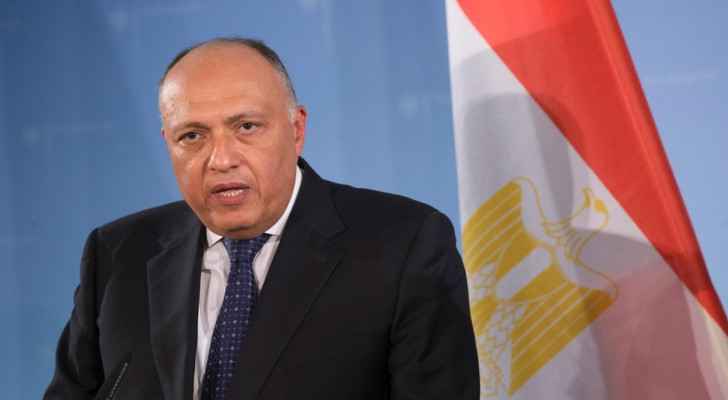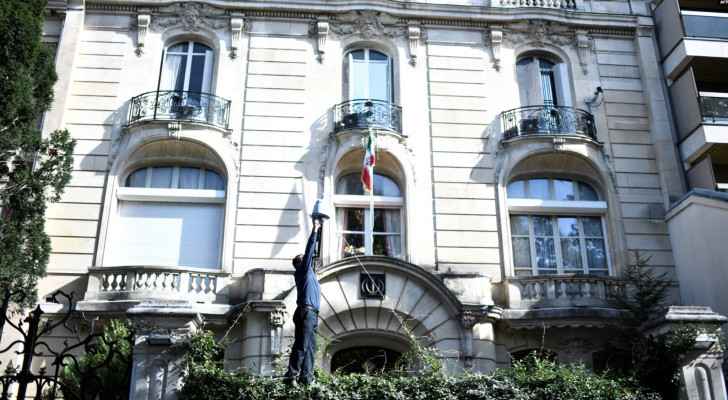Lebanon: Christians, Syrians and 2 Concepts of the Minority - By Hazem Saghieh, Asharq Al-Awsat
Fifty years ago, Palestinian youths took up arms in Lebanon. Despite the fiery speeches, the “liberation of Palestine” was not their main goal. Most of them were born in Lebanon and had never been to Palestine. The defeat of 1967 and fragmentation that afflicted regional countries paved the way for armament. The defeated Syrian regime was generous in exporting instruments of death. And since the “liberation of Palestine” was the trendy slogan, they were taken in by organizations that promised them a heroic feat that Abdel Nassar failed to achieve.
They took up arms in response to the humiliation and marginalization imposed on them in Lebanon.
The solution that rested in weapons and the war was suicidal. The catastrophe welcomed everyone with open arms. Lebanon itself was swollen whole by the disaster.
Today, certain parties are pushing the Syrians in Lebanon to repeat what the Palestinians did. As long as the strongest voices of incitement are coming from the Christian environment, then such a possibility will threaten the Christians and the Syrians.
During a time when identities are sensitive to numbers and demographics, it is understandable for Christians to be afraid and for the Syrian presence - a product of a tragedy sparked by the regime against its people – would become a topic of heated debate. It is unacceptable, however, that discrimination be proposed as a solution to the heightened sectarian fears. No one will emerge from this battle unscathed.
The minority consciousness, progressively defined as the demand for equality, democracy and cultural development or the spread of more enlightened thought, is today coming under attack from several fronts: The majorities cannot harbor the minorities or rest assured because they too are in a state of panic. The consciousness that prevails in the region is less democratic and egalitarian, and of course, less secular, than ever before.
Populism is on the rise in Lebanon and the rest of the world. Most prominent of all is the justified Lebanese Christian sentiment that they do not have a say in major decisions in their country. They cannot say “no” to everyone who wants to take up arms and open a front to resist a certain enemy. This neglect, which cannot be compensated by any official job or administrative post, reached its peak with Hezbollah, but dates back to at least 1956. It is a product of years of feeling politically ineffective towards their life and death. Sometimes, they yield to the gunmen, sometimes they resist before being defeated.
This is why calls have emerged from within the Christian environment for Lebanon to remain neutral from regional conflicts and the Syrian war and for an international monitor to be deployed on the southern border. All of these calls have been met with insults and accusations of treason or have simply been ignored.
This excessive Christian incapacity is transferred as excessive force in confronting the weaker Muslim or Arab. The armed “populist” and “Islamic” bullying against the Christians becomes Christian bullying, through an official authority or not, against the civilian Muslim, Palestinian or Syrian. The victim is always the helpless refugee. He is, in other words, the victim of the victim.
The plight of the progressive minority consciousness lures some to adopt another form of minority consciousness that is propagated by Foreign Minister Jebran Bassil. Here, we hark back to the colonial experience in Algeria, Palestine and South Africa where the colonized are treated as minorities. Power and privilege here replace weakness and the demand for equality. The elimination of the other becomes a form of asserting oneself.
The concept of minority was formed at various stages of history: The history of colonization, then the arrival of stock market capitalism to replace the capitalism of production. Instead of building societies and strengthening its bonds, they became fragmented and segregated. The rich minority, for example, could no longer tolerate living with the poor majority.
Italy gave a glowing example of this transformation: Fiat owner Agnelli tried to repeat the Ford experience in the US, whereby technological advances would raise salaries and transform workers into consumers. After two decades, however, the Northern League was formed and it separated the poor of the South from the rich, who formed their independent “Padania state”.
Lebanon enjoys another factor: The officers whose professional minority merged into a civil minority and were able through the official authority to transform weakness into strength. Bassil is an officer in the making, but in civilian clothing.
Maintaining this course of action will lead to catastrophe, even if populism appears to be a winning concept for its advocates. The opportunities for victory, however, begin to decrease as the poison spreads.
It is true that Lebanon is one of the few remaining countries where discrimination is discussed and where racists are openly confronted. This is in credit to available freedoms and the traditional openness to western democratic societies that discuss and resist their own discrimination. The question, however, remains: How long will this openness remain, especially since several Lebanese are deprived of their right to determine their fate in ongoing regional crises?
This ugly bullying of those who do not want resistances and wars gives way to an uglier bullying against victims, who were displaced by the regimes of resistances and wars.
Latest News
 Dubai reels from floods chaos after record rains
Dubai reels from floods chaos after record rains Khasawneh, Saudi Shura Council speaker discuss bilateral ties, regional developments
Khasawneh, Saudi Shura Council speaker discuss bilateral ties, regional developments Egyptian Foreign Minister condemns potential Palestinian displacement as 'war crime'
Egyptian Foreign Minister condemns potential Palestinian displacement as 'war crime' Travelers from Jordan advised to confirm flights amid Gulf weather turmoil
Travelers from Jordan advised to confirm flights amid Gulf weather turmoil France summons Iranian ambassador over strikes against “Israel”
France summons Iranian ambassador over strikes against “Israel”
Most Read Articles
- King, Bahrain monarch stress need to maintain Arab coordination
- Dubai reels from floods chaos after record rains
- Security Council to vote Thursday on Palestinian state UN membership
- Khasawneh, Saudi Shura Council speaker discuss bilateral ties, regional developments
- Hizbollah says struck Israel base in retaliation for fighters' killing
- Tesla asks shareholders to reapprove huge Musk pay deal
- Jordan will take down any projectiles threatening its people, sovereignty — Safadi
- The mystery of US interest rates - By The mystery of US interest rates, The Jordan Times
- Princess Basma checks on patients receiving treatments
- Knights of Change launches nationwide blood donation campaign for Gaza